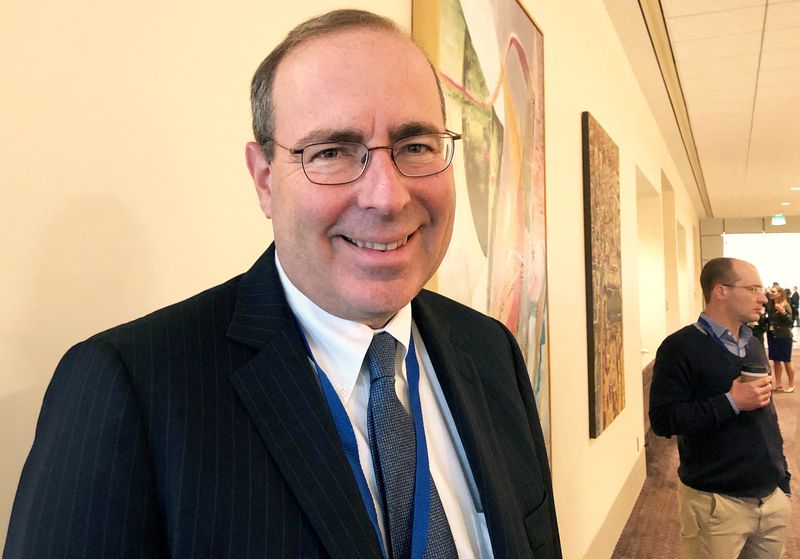(Reuters) -The timing and pace of interest rate increases will depend on what happens with inflation and Federal Reserve officials may need to move more "aggressively" if inflation remains elevated, Richmond Fed Bank President Thomas Barkin said Thursday.
"The closer that inflation comes back to target levels, the easier it will be to normalize rates at a measured pace," Barkin said in remarks prepared for a virtual event organized by the Virginia Bankers Association and Virginia Chamber of Commerce. "But were inflation to remain elevated and broad-based, we would need to take on normalization more aggressively, as we have successfully done in the past."
Policymakers are set to debate strategies for removing the extraordinary support offered during the pandemic when they meet in two weeks, including possible approaches for raising interest rates and reducing more than $8 trillion in bond holdings.
Several Fed officials have said in recent days that they would support raising interest rates at least three times this year, starting in March, if the economy stays on the current trajectory.
Barkin said the labor shortage making it difficult for businesses to find needed workers may persist because of longstanding trends in demographics and challenges related to the pandemic.
The Fed official said he expected the labor market to see more growth last fall as more businesses reopened but instead, labor force participation has been "basically stagnant," something policymakers may need to accept.
"I do think this is a long lasting phenomenon," Barkin said.

Asked about the Fed's work on a potential central bank digital currency, Barkin said a model where individuals could hold deposits with the Fed would not be a good fit in the U.S. and could raise privacy concerns.
"You have to think hard about what the use case might be for digital currencies," Barkin said. Fed Chair Jerome Powell said Tuesday that the Fed's discussion paper on digital currencies would be released in the coming weeks.